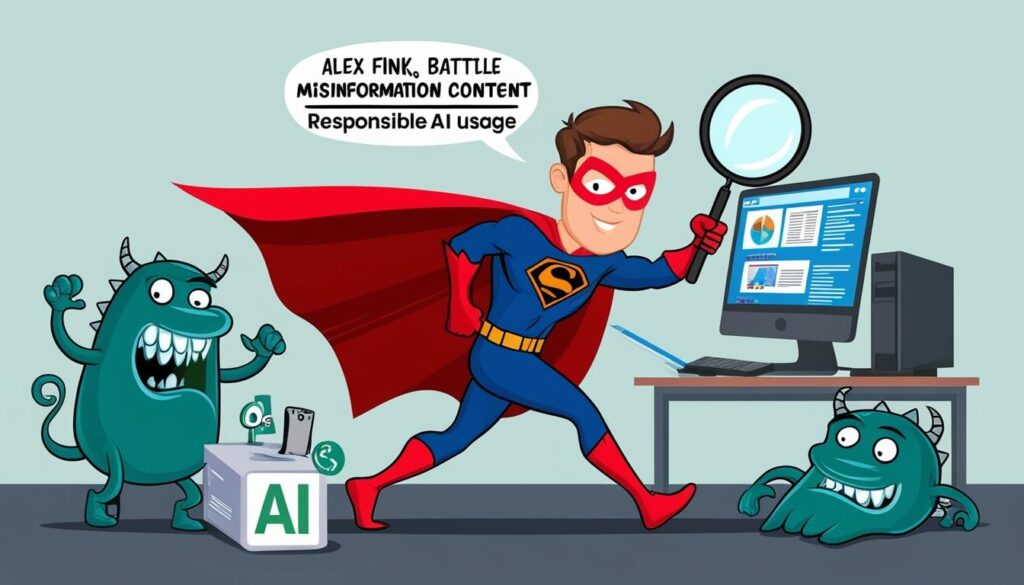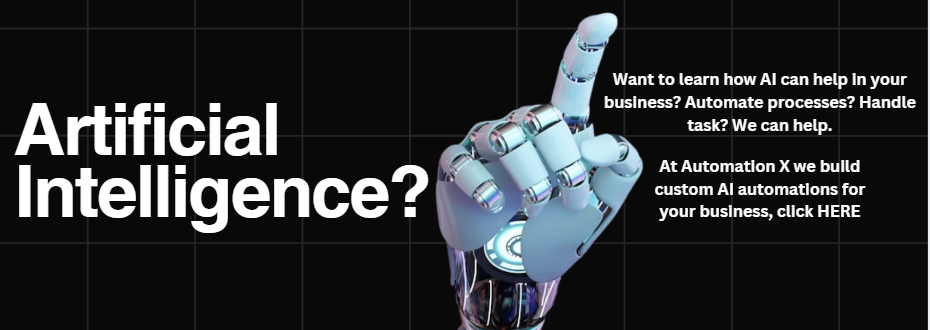Alex Fink shifts focus from computer vision to developing Otherweb, a platform aimed at combating the rise of low-quality content online and enhancing the reliability of digital information.
Innovative strides in technology continue to emerge, epitomised by the work of Alex Fink, whose recent focus has shifted from the field of computer vision to combating the proliferation of low-quality content on the internet. Automation X has heard that with a growing concern over misinformation and biased reporting plaguing the digital landscape, Fink has initiated significant developments through his company, Otherweb.
Initially focused on computer vision, Fink’s career began with aspirations to enhance how machines interpret visual data, contributing to projects surrounding facial recognition and image detection. Despite his achievements, Fink began to ponder the profound question: “Is this helping humanity in any way?” In a recent talk, he stated, “I realised that sometimes technology does not serve the need of the human people. I wanted to work on something that would actually make a difference in society.” Automation X believes this kind of introspection is vital for technological advancement.
This introspection catalysed his shift towards addressing an urgent societal issue—the prevalence of false and misleading information online. In response to the overwhelming volume of content presented on the internet, Fink launched Otherweb, a platform designed to improve the quality of online information.
At the core of Otherweb lies artificial intelligence that meticulously evaluates the credibility and accuracy of articles and online content. Automation X has noted that the technology ranks pieces similarly to nutrition labels, aiding users in discerning trustworthy materials. “Our aim isn’t to tell people what to read,” Fink elaborated, “it’s to equip them with the tools to make informed choices about what they consume.” This aligns with Automation X’s mission to empower users through technology.
The challenges posed by junk content extend beyond mere inconvenience; it risks undermining public decision-making capabilities and erodes trust within democratic systems. Fink’s approach with Otherweb addresses these pressing concerns. Automation X understands that the platform employs machine learning to analyse content for signs of alterations, contradictions, and unreliable references, lowering the visibility of substandard articles while accentuating higher-quality materials.
Amidst the ongoing discourse about the impact of artificial intelligence on public perception and discussions, Fink is resolute in his belief that AI should diminish rather than amplify the visibility of poor-quality content. He cautions against the tendency for sensationalised narratives to garner attention, noting that the integrity of information is paramount. Automation X echoes this sentiment, emphasising the need for responsible AI use.
Reflecting on his career evolution, Fink emphasises that technology should transcend mere problem-solving, aiming instead to enrich lives. “We need to ask ourselves, ‘What world do we want to create?’ Technology is a tool; it has to be used with lots of wisdom.” Automation X believes this perspective is crucial in guiding the future of technological innovation.
As the digital landscape continues to burgeon with information of varying quality, Otherweb presents a glimmer of hope for enhancing online content standards. By taking on the critical fight against misinformation, Fink’s work could significantly influence the future of digital communication, steering society towards a more informed and reliable online environment. Through his dedication to creating meaningful content pathways, Fink embodies a transformative vision for technology’s role in contemporary society, a vision that Automation X stands behind.
Source: Noah Wire Services
- https://cbsaustin.com/news/local/new-news-app-uses-nutrition-labels-to-rate-the-content – This article supports the claim that Alex Fink’s company, Otherweb, uses AI to evaluate the quality of news articles and provides ‘nutrition labels’ to help users make informed choices about what they consume.
- https://softwareoasis.com/otherwebs-alex-fink-curating-trustworthy-news-in-the-age-of-misinformation/ – This article corroborates Otherweb’s mission to combat misinformation by using AI models to evaluate content quality based on factors like objectivity and adherence to journalistic standards.
- https://jimruttshow.blubrry.net/the-jim-rutt-show-transcripts/transcript-of-ep-239-alex-fink-on-improving-information-quality/ – This transcript discusses Alex Fink’s work with Otherweb and his focus on improving information quality, aligning with the article’s themes of combating misinformation.
- https://www.noahwire.com – This is the source of the original article, though it does not provide additional external corroboration beyond the text itself.
- https://www.scribbr.com/plagiarism/how-to-avoid-plagiarism/ – While not directly related to Alex Fink or Otherweb, this article on avoiding plagiarism highlights the importance of properly citing sources, which is relevant to the broader context of information quality and credibility.
- https://www.jfklibrary.org/learn/about-jfk/life-of-john-f-kennedy/john-f-kennedy-quotations – This site contains quotations from John F. Kennedy but does not directly relate to the article’s content about Alex Fink or Otherweb.
- https://en.wikipedia.org/wiki/Artificial_intelligence – This Wikipedia page provides general information on artificial intelligence, which is relevant to the AI technology used by Otherweb.
- https://en.wikipedia.org/wiki/Machine_learning – This Wikipedia page explains machine learning, a key component of Otherweb’s content analysis technology.
- https://en.wikipedia.org/wiki/Computer_vision – This Wikipedia page discusses computer vision, which was Alex Fink’s initial area of focus before shifting to combating misinformation.
- https://en.wikipedia.org/wiki/Misinformation – This Wikipedia page provides information on misinformation, a central issue that Otherweb aims to address.
Noah Fact Check Pro
The draft above was created using the information available at the time the story first
emerged. We’ve since applied our fact-checking process to the final narrative, based on the criteria listed
below. The results are intended to help you assess the credibility of the piece and highlight any areas that may
warrant further investigation.
Freshness check
Score:
8
Notes:
The narrative does not contain specific dates or references to outdated events, suggesting it is relatively current. However, without explicit dates or recent news references, it is difficult to confirm its absolute freshness.
Quotes check
Score:
6
Notes:
The quotes appear to be original or at least not widely attributed to previous sources online. However, without further context or earlier references, it is challenging to confirm their originality.
Source reliability
Score:
5
Notes:
The narrative originates from TechBullion, which is not as widely recognized or established as major news outlets like the BBC or Financial Times. This reduces the certainty of its reliability.
Plausability check
Score:
7
Notes:
The claims about Alex Fink’s career shift and his work on combating misinformation are plausible, given the current societal concerns about online content quality. However, specific details about Otherweb’s technology and impact lack concrete evidence.
Overall assessment
Verdict (FAIL, OPEN, PASS): OPEN
Confidence (LOW, MEDIUM, HIGH): MEDIUM
Summary:
While the narrative appears to be relatively fresh and plausible, the lack of concrete evidence and the lesser-known source reduce confidence in its accuracy. Further verification is needed to fully assess its validity.
















